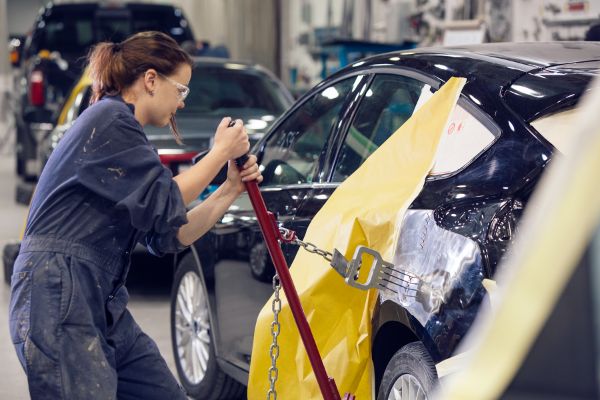If you own a trailer—whether it’s for work, travel, or recreation—you know how useful and dependable it can be. From carrying heavy loads to providing a cozy space during a road trip, trailers are an important part of many people’s lives. But just like cars or trucks, trailers need regular maintenance to keep working properly. That’s where trailer service and repair come into the picture.
Neglecting trailer upkeep can lead to serious problems, including breakdowns on the road, accidents, or damage to your cargo. Regular checks and timely repairs ensure that your trailer remains safe, reliable, and road-ready. This article explores why taking care of your trailer matters, what to look out for, and how to spot issues early before they become costly.
The Basics of Trailer Maintenance
Taking care of a trailer doesn’t have to be complicated. In fact, most maintenance tasks are simple once you understand what to look for. Here are some key areas to focus on:
1. Tires
Tires are one of the most critical parts of a trailer. Worn-out or underinflated tires can blow out while you’re driving, leading to dangerous situations. Make it a habit to inspect tire pressure and tread depth regularly. Also, keep an eye out for cracks or bulges, which may signal the need for replacement.
2. Brakes
If your trailer has its own braking system, it’s essential to make sure it’s working properly. Brakes that grab, squeak, or feel weak can put you at risk. Braking systems should be checked at least once a year, especially before long trips or hauling heavy loads.
3. Lights and Wiring
Functional lighting is not just a safety feature—it’s also a legal requirement. Tail lights, brake lights, and turn signals all need to work correctly. Loose wires, corroded connectors, or burned-out bulbs can lead to lighting failures. Test your lights before every trip and fix any issues immediately.
4. Hitch and Coupling
The hitch is the connection point between your trailer and the towing vehicle. It must be solid, rust-free, and securely locked in place. Make sure safety chains are attached properly, and check for signs of wear on the coupling parts.
5. Bearings and Axles
Greased bearings keep the wheels turning smoothly, while axles carry the load. If bearings go dry or get damaged, your wheels can seize up or even come off. Axles that are bent or overloaded may fail unexpectedly. Regular greasing and inspection of these parts are vital.
Common Signs You Need Repairs
Even with good maintenance habits, problems can still develop over time. Here are some common warning signs that it’s time to consider trailer service and repair:
- Unusual noises: Clunking, grinding, or squeaking sounds often mean something is loose or damaged.
- Uneven tire wear: This could be a sign of axle misalignment or suspension issues.
- Shaky or bumpy rides: A trailer that bounces or sways too much might have suspension or balance problems.
- Brake problems: Delayed braking, noise, or a pulling sensation when braking may mean brake pads or drums need attention.
- Corrosion or rust: While some surface rust is normal, deep rust on key parts like the frame, hitch, or axles can weaken the structure.
Ignoring these signs can turn a small fix into a costly repair—or worse, a safety hazard.
How Often Should You Service Your Trailer?
The frequency of service depends on how often and how far you use your trailer. As a general rule:
- Before each trip: Do a basic walkaround inspection. Check lights, tires, and hitch connections.
- Every 6 months: Look at brakes, bearings, and wiring.
- Annually: Consider a more thorough inspection of all major components.
If you use your trailer heavily—for example, for daily work or long-distance hauling—you might need more frequent checkups. On the other hand, trailers that sit unused for long periods still need care, especially to prevent rust, flat tires, and battery drain.
DIY vs. Professional Help
Some trailer maintenance tasks are simple enough to do at home. Changing a tire, checking lights, or greasing the hitch can all be handled with basic tools. However, more complex tasks—like repairing brakes, fixing wiring, or adjusting axles—might require professional expertise.
Safety should always come first. If you’re unsure about a repair or don’t have the right tools, it’s better to let an experienced technician take a look.
Keep a Maintenance Record
One helpful habit is to keep a log of all maintenance and repair work. Write down the dates of tire replacements, brake checks, greasing, and other key tasks. This record helps you stay on schedule and can also increase the resale value of your trailer if you ever decide to sell it.
Final Thoughts
Regular trailer service and repair not only extend the life of your trailer but also keep you and others safe on the road. Whether you use your trailer for work, travel, or weekend getaways, taking care of it should be a top priority. A well-maintained trailer runs smoothly, hauls better, and helps prevent costly breakdowns or accidents.
Remember, your trailer might not have an engine, but it still deserves the same level of care as any other vehicle. With routine inspections, timely repairs, and a little bit of attention, your trailer will serve you well for years to come.









